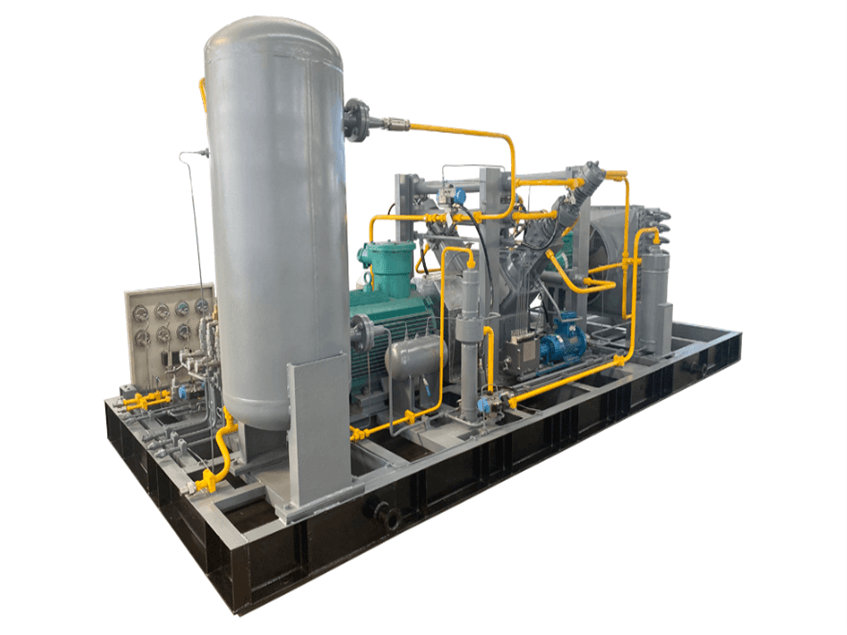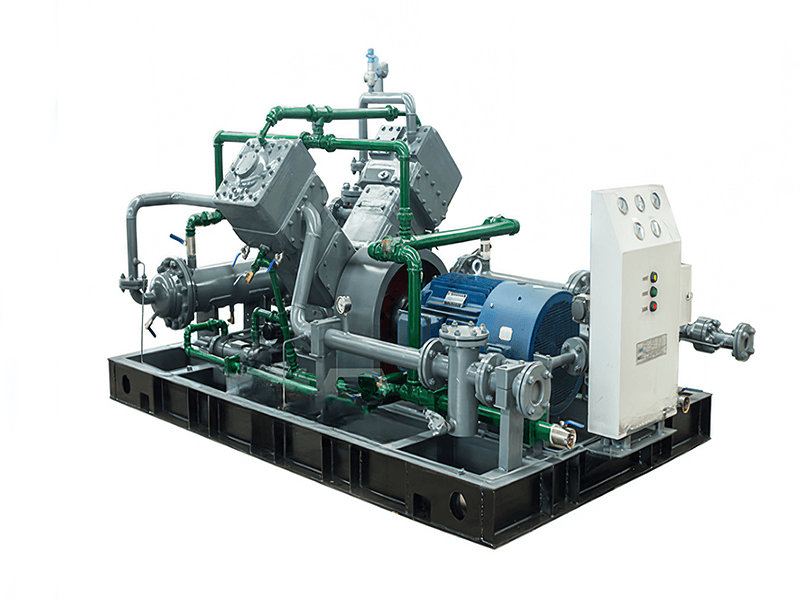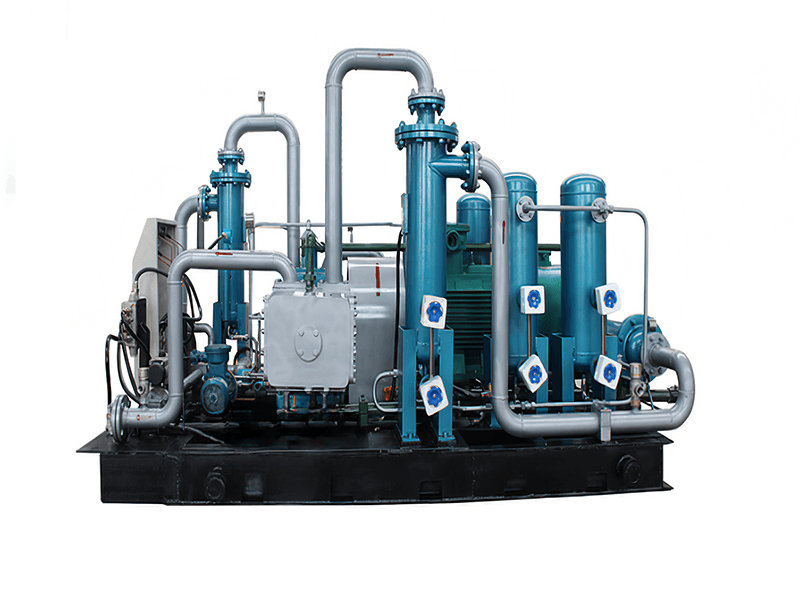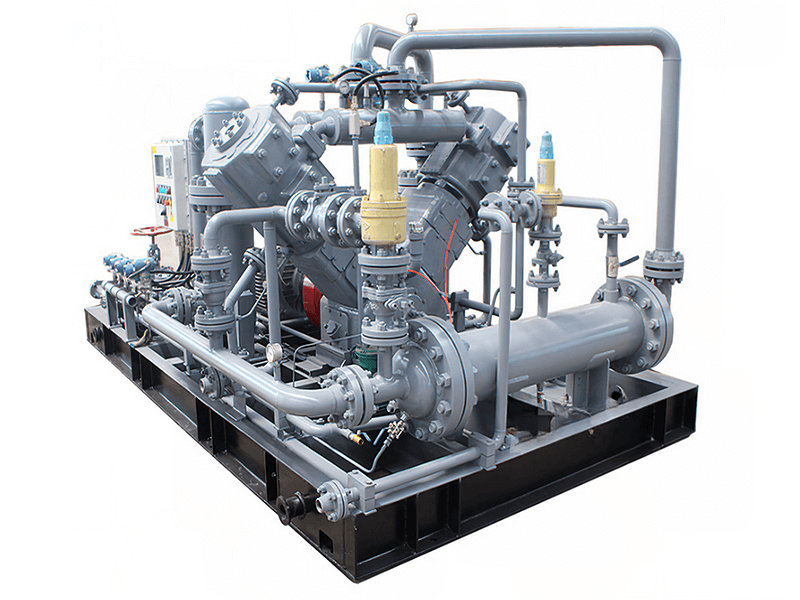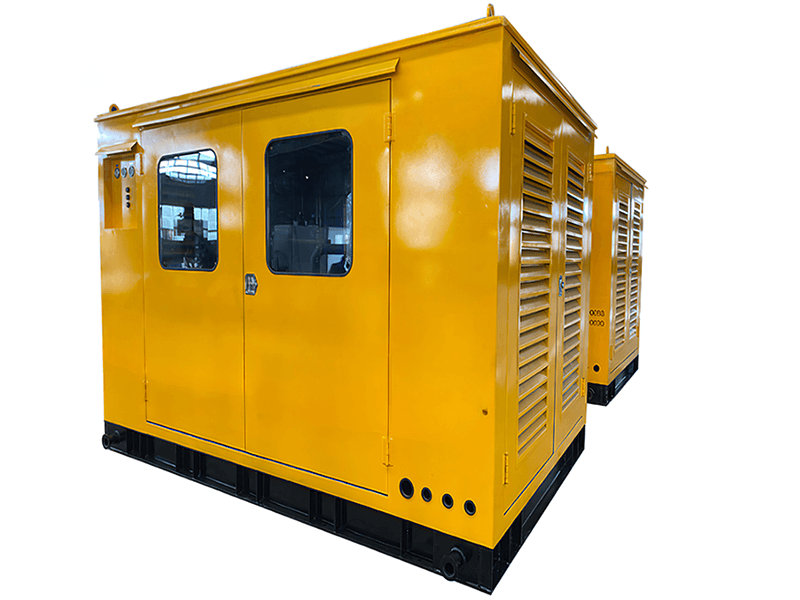Boil-off gas compressors are specialized compressors used in the liquefied natural gas (LNG) industry to handle and compress the evaporated gas that occurs during the storage and transportation of LNG.
The compressors used for handling boil-off gas can vary in type, depending on the specific requirements and design of the LNG facility. Common types of compressors used include reciprocating compressors, centrifugal compressors, and screw compressors. The selection of the compressor type depends on factors such as gas volume, pressure requirements, operating conditions, and efficiency considerations.
Common faults that can occur in boil-off gas compressors include:
1. Compressor Overheating: Overheating can be caused by insufficient cooling, high discharge temperatures, fouled heat exchangers, or inadequate lubrication. It can lead to reduced compressor efficiency, increased wear, and potential damage to components.
2. Vibration and Misalignment: Excessive vibration can result from misalignment of compressor components, loose connections, or worn bearings. It can lead to increased mechanical stress, reduced efficiency, and potential damage to the compressor and associated equipment.
3. Gas Leakage: Gas leakage can occur due to worn seals, faulty valves, or damaged compressor components. It can result in reduced compression efficiency, increased energy consumption, and potential safety hazards.
4. Oil Carryover: Excessive oil carryover can happen due to oil foaming, high discharge temperatures, or inadequate oil separation. It can lead to contamination of downstream equipment, reduced compressor performance, and increased maintenance requirements.
5. Control System Malfunctions: Faulty control systems can result in improper compressor operation, inadequate capacity control, or inability to respond to changing demand. It can lead to inefficient operation, energy waste, and reduced compressor performance.
6. Bearing Failures: Bearings support the rotating shaft and can experience failures due to inadequate lubrication, misalignment, or excessive loads. Bearing failures can cause increased vibration, reduced efficiency, and potential damage to other components.
7. Valve Sticking: Valves can stick due to corrosion, deposits, or improper maintenance. Sticking valves can result in reduced compression efficiency, increased energy consumption, and potential compressor instability.
8. Mechanical Wear: Wear and tear on compressor components, such as pistons, cylinders, or rotors, can lead to reduced efficiency, increased energy consumption, and potential gas leakage.
9. Electrical and Instrumentation Issues: Faulty electrical connections, malfunctioning sensors, or instrumentation failures can affect compressor control, monitoring, and safety systems. It can result in improper operation, reduced reliability, and potential safety risks.
10. Surge and Stall: Operating the compressor outside its stable operating range can cause surge or stall conditions. Surge is characterized by significant pressure fluctuations and can lead to compressor damage. Stall occurs when the compressor cannot maintain sufficient gas flow and can result in reduced efficiency and increased wear.
Proper maintenance, regular inspections, and prompt troubleshooting are essential to address these faults in boil-off gas compressors. It's important to follow manufacturer recommendations, conduct routine maintenance tasks, and involve qualified professionals for fault diagnosis, repair, and optimization of compressor performance.

To avoid common faults in boil-off gas compressors, it is important to implement proper maintenance practices and adhere to recommended operating guidelines.
1. Regular Inspection and Maintenance: Implement a routine inspection and maintenance program for the compressors. This includes checking and maintaining proper lubrication, monitoring component wear, inspecting seals and valves, and ensuring proper alignment. Follow the manufacturer's recommendations for maintenance intervals and procedures.
2. Proper Lubrication: Use the recommended lubricants and follow the lubrication schedule specified by the compressor manufacturer. Ensure that lubrication levels are maintained within the specified range to prevent excessive wear and overheating.
3. Cooling System Maintenance: Maintain the cooling system of the compressor, including cleaning heat exchangers, ensuring proper coolant flow, and monitoring coolant temperatures. Clean or replace air filters regularly to prevent fouling and ensure efficient heat dissipation.
4. Control System Monitoring: Regularly monitor and calibrate the control system of the compressor to ensure it is functioning properly. Check control parameters, such as pressure, temperature, and capacity control, to ensure they are within the recommended range.
5. Vibration Monitoring: Implement a vibration monitoring program to detect excessive vibration levels in the compressor. Excessive vibration can indicate misalignment, bearing wear, or other mechanical issues. Promptly address any vibration issues to prevent further damage.
6. Valve and Seal Maintenance: Inspect and maintain valves and seals regularly. Replace worn or damaged components promptly to prevent gas leakage and ensure proper sealing.
7. Operating within Design Parameters: Operate the compressor within its specified design parameters, including pressure and temperature limits. Avoid operating the compressor at extreme conditions or outside its stable operating range to prevent surge, stall, and other operational issues.
8. Training and Operator Awareness: Provide proper training to operators on the correct operation, monitoring, and maintenance procedures for the compressors. Promote operator awareness of potential faults and the importance of timely reporting and addressing any abnormalities.
9. Documentation and Record Keeping: Maintain comprehensive documentation of maintenance activities, inspections, repairs, and performance data. Keep records of any faults, their causes, and the actions taken to rectify them. This information can help identify trends, facilitate troubleshooting, and improve future maintenance practices.
10. Manufacturer Guidelines: Follow the guidelines and recommendations provided by the compressor manufacturer. These guidelines often include specific maintenance procedures, lubrication requirements, and operational considerations tailored to the specific compressor model.
By implementing these practices and maintaining a proactive approach to compressor maintenance, operators can minimize the occurrence of faults, optimize compressor performance, and ensure the safe and efficient operation of boil-off gas compressors.














